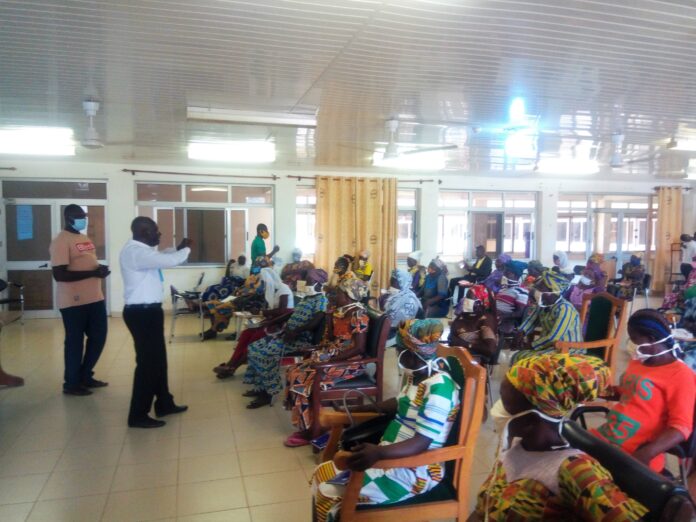Schools Closure: School Children Now Sell Guinea Fowl Eggs On Bolga-Navrongo Road

Some school children in the Upper East Region have taken advantage of the closure of schools due to the COVID-19 pandemic to sell local guinea fowl eggs and shea fruits along the Bolgatanga-Navrongo highway.
The students and pupils aged from 10 to 19 years walk along parts of the Bolatanga- Navrongo highway, from Anateem, Doba, Kandiga junction through to Navrongo in the Kassena-Nankana Municipality with their wares.
The Ghana News Agency (GNA) noticed that the children often start their business on the road as early as 0600hours and sell throughout the day to about 1900hours.
They sit in groups and display the eggs and shea fruits by the edges of the road, mostly by speed ramps where vehicles usually slowed down.
The older students among the children sell the local guinea fowl eggs in calabashes, while the younger ones sell shea fruits that they harvest from trees in their communities.
While on the stretch of road, the GNA observed that the students run after vehicles to sell their eggs as the vehicles slowed down and parked along the road, and the younger ones stood by the side of the road and stretched their shea fruits towards commuters.
One of the students, Master Denis Ayamga, a second year student of the Zorkor Senior High School in the Bongo District, said he had nothing to do, and was tired of sitting at home, “So I decided to come here and sell my eggs to get money.”
He said a calabash contained 25 eggs, sold at GHC 20.00, adding that he was able to sell up to four calabashes of eggs a day.
Master Ayamga said but for the COVID-19, he would have been engaged with academic activities in school.
Master Raymond Awillya, a pupil of the Abatey Junior High School in the Kassena-Nankana Municipality who was seated by Master Ayamga said sales were not too good for him, “Sometimes I am able to sell a calabash full other times too, I sit here the whole day without anyone buying.”
Master Anthony Kiyoo, a student of the Bolgatanga Senior High School said “We don’t know when we will be called back to school. I have to get myself busy, so I chose to sell eggs here to support myself, with the money I make here, am able to buy my needs.”
The GNA also observed that none of the children had face masks on, as they sat closely together without observing any social distancing protocol.
The response of all the children, when the GNA asked why they had no face masks on was that “We left them at home.”
Both the shea fruit and guinea fowl eggs are in peak season, the guinea fowls, reared under open range feed on the fresh new grass that starts growing after the first rains in April/May and begin to lay eggs from that period through to September, while the shea fruits start ripening in June and are available for consumption until late September.
—GNA





